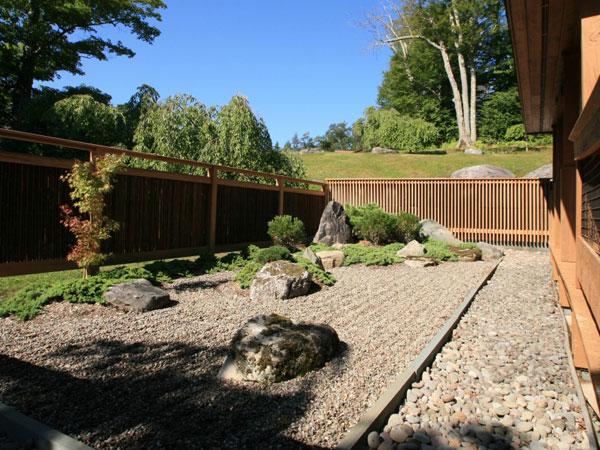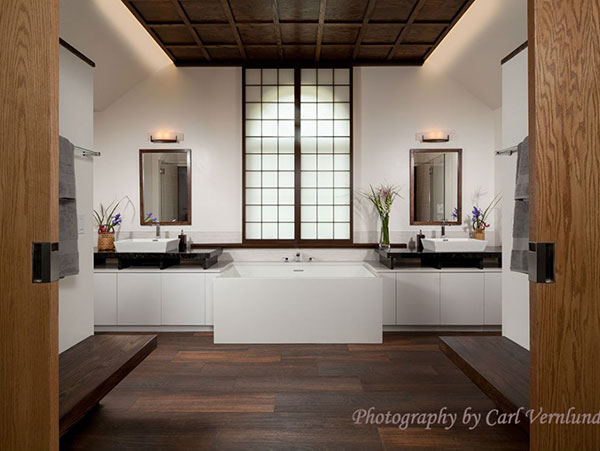Some of you may know the Japanese term Mizuya (水屋), expressed with Chinese characters for “water” and “house”, as a type of Japanese kitchen chests. It is getting popular in New York and other metropolises. Yet did you realize that Mizuya initially had a quite different meaning?
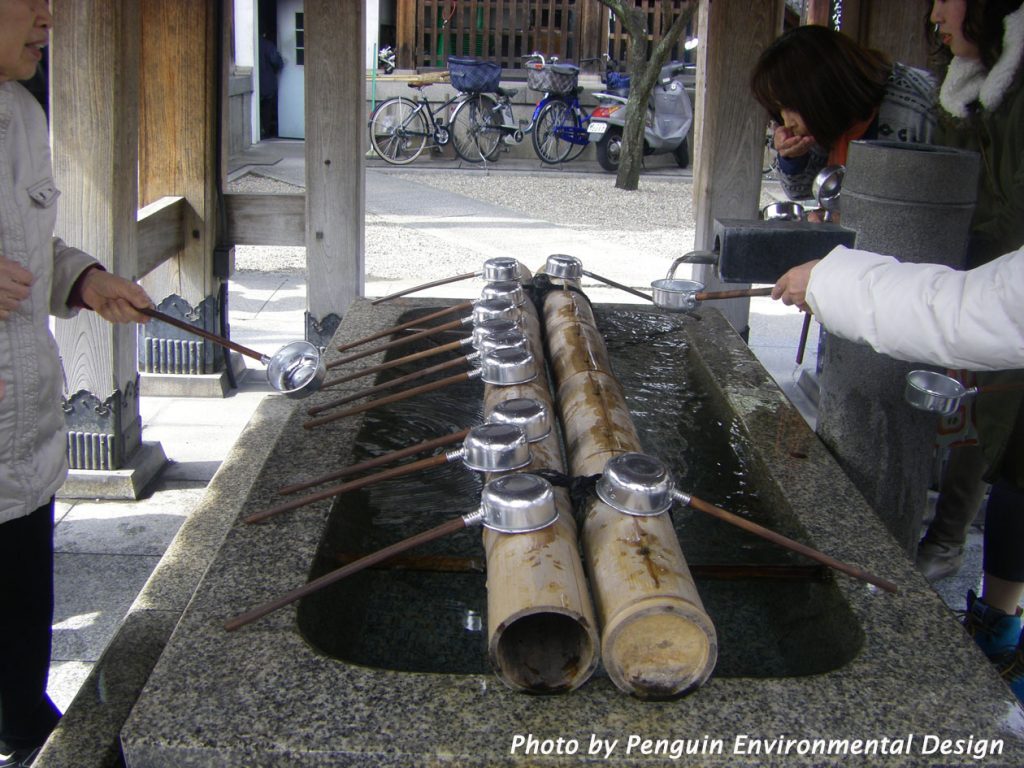
Mizuya originally referred to, and still could refer to, a gazebo built over a water fountain at Japanese temples or shrines. It is usually placed near the main building where you offer your prayers. At Mizuya , you must rinse your mouth and hands with water . Water prepares you for the prayer by puryfying both your body and mind.
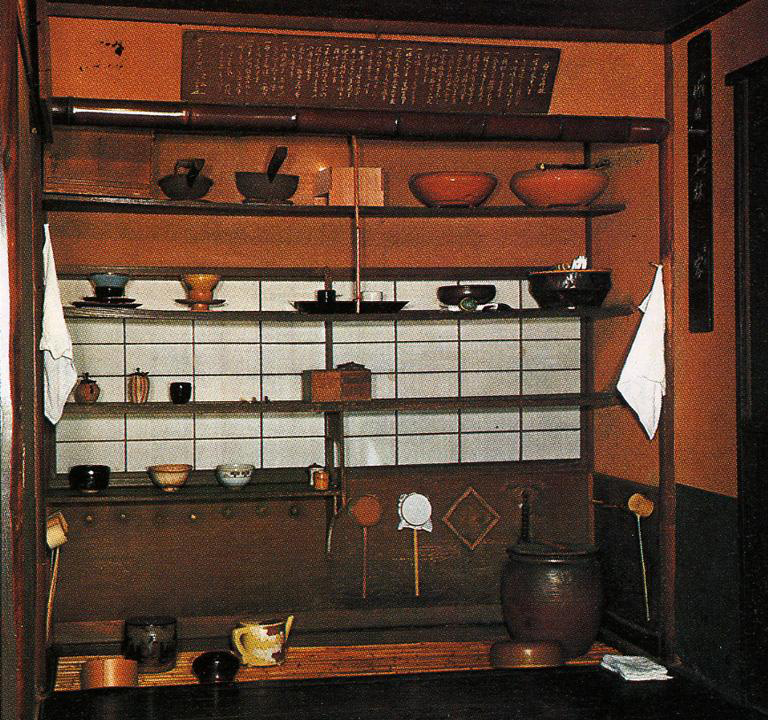
Then, in 16th or 17th century, Mizuya also started to mean a kitchenett for the tea ceremony, Sado (茶道). It has a water vessel, bumboo grills to drain water, and shelves to place bowls and utencils. It is just a backstage of the ceremony. Yet keeping this place clean is extremely important. For example, one of the first things you learn as a student of Sado is how to wash a tea napkin at a Mizuya. I assume that the purification has become so essential here, since Sado is a sacred or spiritual ritual for many.
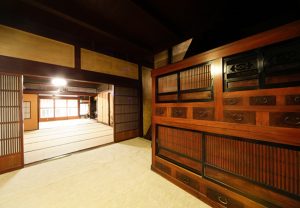
Finally, Mizuya began to stand for a kitchen chest. This is the most common meaning of Mizuya in modern Japanese language. The furniture was named so probably after the shelves seen in Mizuya as a Sado kitchenett. I think that people stopped signifying this Mizuya with the idea of purification.
Yet instead, many Japanese in middle age or older often have fond memories of Mizuaya. Mizuya chest can hold not only bowls and utensils, but also dishes of food behind the grilled slidng panels. When you come home from school, your mother would say “Go to Mizuya for snack!” I do have that fond memory and love the word with or without the image of purification. (Y)

